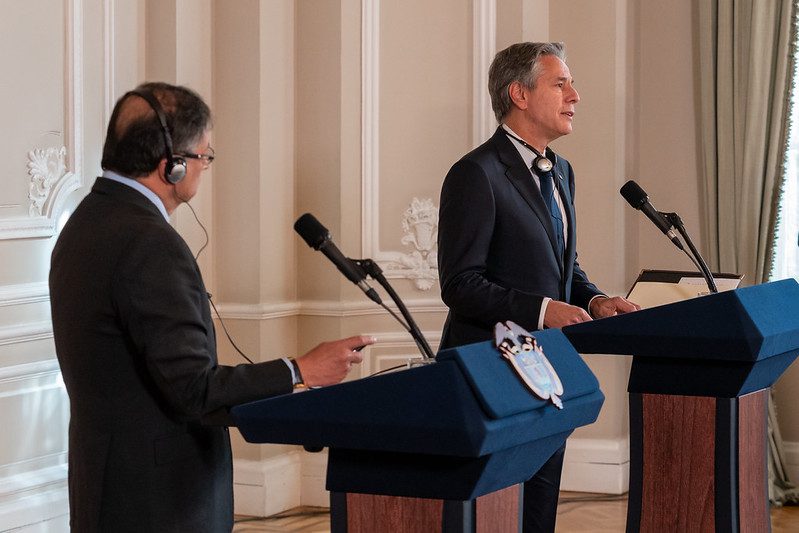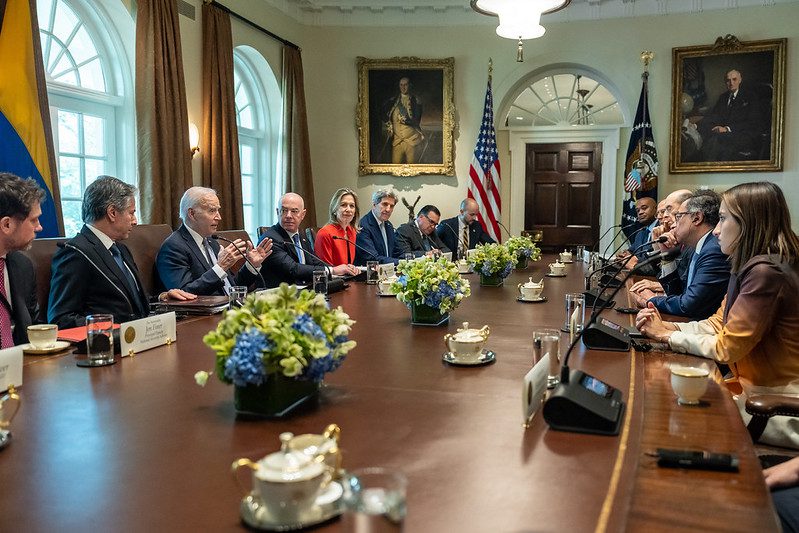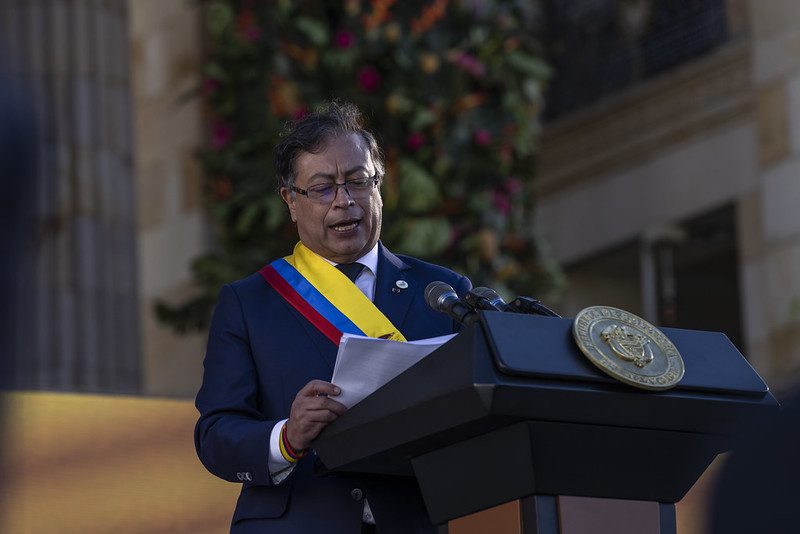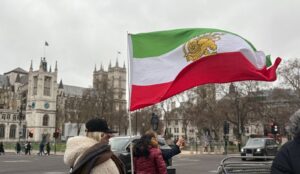The bilateral relationship between the United States and Colombia has entered a sharp period of tension, driven by aggressive rhetoric and policy friction between President Trump and Colombian President Gustavo Petro.
The latest flashpoint emerged on 19 October 2025, when President Trump publicly accused President Petro of being an “illegal drug leader” and announced that US aid subsidies to Colombia would be cut off. The accusation originates from US claims that Colombia under the Petro administration has failed in its counternarcotics obligations including constraints on coca cultivation and cocaine production.
Petro has rejected this characterisation, arguing that Colombia has seized record quantities of cocaine and that the US lack of recognition of these efforts unfairly penalizes the country. The decertification itself is largely symbolic, the US granted Colombia a waiver to continue cooperation, but the public relations impact has been significant.
Another major clash occurred earlier in the year, in January 2025, when Colombia refused to allow US military aircraft carrying deported Colombian nationals to land, citing concerns over the dignity and treatment of migrants. President Trump responded with threats of a 25 percent tariff on all Colombian goods entering the US, to increase to 50 percent within a week unless Colombia complied. Visa bans and enhanced inspections of Colombian cargo and nationals were also threatened. The standoff was resolved when Colombia accepted the return flights and offered its presidential plane to repatriate citizens on more dignified terms.

Image: Former Secretary of State Blinken and Colombian President Petro – Ron Przysucha – State Department
Ship-based US military strikes in the Caribbean directed at alleged narcotics-smuggling vessels have also become a point of contention. President Petro has condemned these strikes as violations of Colombian sovereignty and described them as “murder”. Meanwhile, the US has repatriated survivors of one such strike to Colombia and Ecuador rather than hold them under US detention, saying they were involved in narcotics trafficking.
These developments reflect a wider intensification of US foreign-policy posture under Trump towards Latin America, especially regarding drug trafficking and migration, and a more assertive tone with longstanding partners. For his part, Petro has pursued an independent foreign policy hedging away from traditional US alignment, including a strategic partnership with China, and is keen to assert Colombia’s sovereignty.
On the trade front, Colombia is exposed: the earlier tariff threats exposed Bogota’s economic vulnerability and triggered investor concern. At the same time Colombia’s domestic challenges remain severe: the cultivation of coca continues to rise, and the US criticises the Petro government for failing to curb narcotics trafficking effectively. Petro responds that the increase in coca-planting is a legacy issue from previous administrations, and that gains made by Colombian security forces should not be ignored.

Image: President Joe Biden participates in an expanded bilateral meeting with President Gustavo Petro of Colombia – The White House – Adam Schultz
The US–Colombia alliance has long been one of Washington’s most important and stable partnerships in Latin America, built on decades of security cooperation, trade integration, and joint counter-narcotics efforts. However, the current dispute marks one of the most serious rifts in recent memory, reflecting a clear divergence in political tone and strategic priorities. US policy continues to emphasise coercive leverage, conditional aid, and “America First” messaging, while President Gustavo Petro’s government places greater emphasis on national dignity, sovereignty, and pursuing a more multipolar foreign policy that reduces dependency on Washington.
Tensions have been sharpened by disagreements over drug policy, regional diplomacy, and approaches to Venezuela. What happens next remains uncertain. Colombia may look to diversify its alliances and trade relationships beyond the US, strengthening ties with other Latin American countries, Europe, or emerging powers. Meanwhile, Washington could continue to apply pressure not only through aid and trade, but also via formal drug-control certifications and security cooperation. For both countries, adapting to this new reality may reshape the bilateral agenda across trade, migration, and security in the months ahead.
In the immediate term, the spat is likely to overshadow traditional areas of cooperation, such as counternarcotics, defence and migration management and add strain to an alliance that until recently had been relatively stable.
Featured Image via US Aid Agency for International Development




